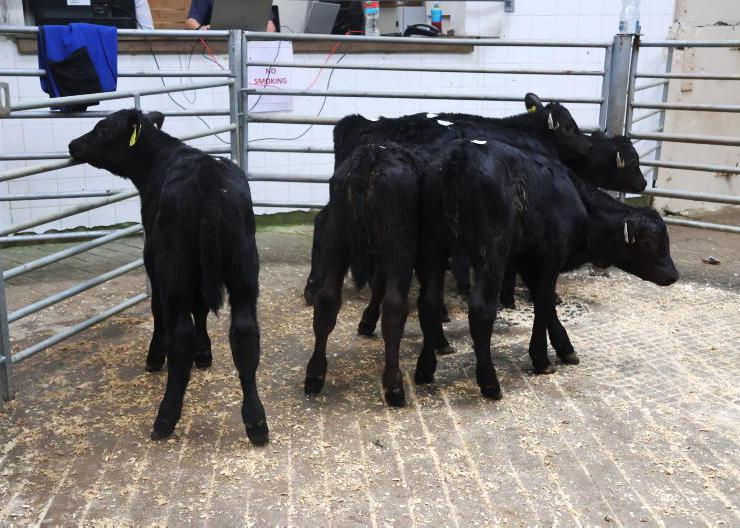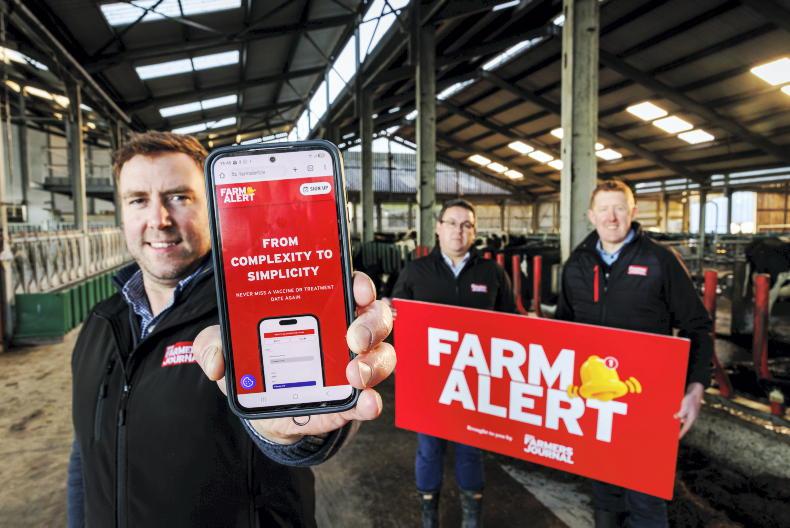An online showcase took place on 16 September a further step toward the establishment of the National Farmer Health Alliance (NHFA).
It aims to have all relevant farm and health organisations working together to provide a central information hub for farmer-specific health and wellbeing awareness campaigns and policy advocacy. After all, it has been done very successfully in Australia, so why not here?
The online “meeting of minds” event last month, which included keynote speakers from Australia and Canada, set about getting a consensus for this initiative and learning from the Australian template.
The virtual conference came on the back of work already done by the NFHA steering committee, which includes representatives from Teagasc, Mental Health Ireland and other key groups.
Idea came from “on Feirm Ground”
So how exactly did the idea come about?
It started with a 2020 Department of Agriculture and Food-funded training programme for farm advisers called On Feirm Ground, which helps advisers identify health issues among farmers and signpost them towards help if necessary.
Led by the Men’s Development Network, those involved in developing this programme saw the value of a centralised information hub that farmers and their families could access online.
“It was a natural extension of the work we were doing across the On Feirm Ground and FarmConnect projects around key themes affecting farmers’ health and wellbeing,” says Sean Cooke, CEO of the Men’s Development Network.
He points out the stark facts. Research is showing that agriculture is disproportionately impacted by health issues, both physical and mental, compared to other sectors.
“Farming also has the highest rate of fatalities of any sector nationally but efforts to encourage farmers to mind their health have suffered from the lack of a centralised, joined-up approach.
“This is an opportunity to finally provide that coherence and bring about big changes for the better for farmers, their families and rural communities.”
Agencies registering interest
The half-day event, where each organisation showcased what they do via short videos, provided an opportunity for interested agencies to register their interest in further discussions to set up this NFHA.
We’re talking health bodies, community organisations, training and support agencies, educational institutions and business, farming groups, Government departments and non-Governmental organisations (NGOs).
“The proposed coalition could become a very effective collective,” says Dr Alison Holmes, a clinical tutor at the University of Limerick (UL), a farmer and member of the steering committee, who worked on the blueprint for the alliance and also chaired the event.
“We hear much of the term ‘sustainability’ in relation to Irish farming practices, yet it is rarely a term used regarding the Irish farmer and family,” she says. “Collaborative efforts such as this allow for the topic of farmer health and wellbeing to be highlighted and addressed on a national scale and to positively impact on individuals and the agri industry as a whole.”
Not always the case that farmers are healthy
Opening the online event, Minister of State at the Department of Agriculture with Special Responsibility for Farm Safety, Martin Heydon TD focused on farmer health outcomes and accident statistics.
“Farming was thought of as healthy, with people working outdoors and getting exercise,” he said. “Unfortunately this is not always the case. Research shows a five times higher incidence of cardiovascular disease, a three times higher incidence of cancers and seven times higher incidence of accidental death in farming compared to white collar work.”
He sees the NFHA as a very positive development and commends all involved for their willingness to take part and effect change.
Australian experience
Thirteen years – that’s how much of a headstart the National Centre for Farmer Health in Australia has on us. It has an excellent website (farmerhealth.org.au) and has 400,000 users – some of them Irish. Ninety-five health-related fact sheets are available and all of their programmes are detailed on the website. They also hold farmer health clinics at agri field days and events to assess farmers’ health. They also have ‘campfire’ programmes to encourage mentally healthy workplaces, online farmers’ health assessment tools (HATs) and an “ifarmwell” toolkit to help farmers cope with life’s challenges and get the most out of every day.
Dr Alison Kennedy, senior research fellow at Australia’s National Centre for Farmer Health, explained the many aspects of their work.
“Our Farmer HAT, for example, allows farmers to benchmark their health via a traffic light system,” she said. “Red means you need to take action. Farmers can also track their health improvements over time.”
In a five-pillar approach that includes community education and training and research and innovation, the Australian Centre aims to make a difference in farmers’ lives.
“Illness and injury among farmers impacts the farming family,” she continues. “There is the need for people to become carers, the cost of healthcare and family members taking on more work, which creates its own risk. Then there is the impact of the loss of key labour and the impact on animals who can’t be cared for properly and there is an impact on the broader farming community too. Farmers are strong volunteers in their communities so farmer health, injury and death can mean a big loss to local organisations.”
The centre travels Australia with health roadshows and has many online aptly-titled programmes, like its Steering Straight programme which offers a written plan people can work on to help identify busy times and stress trigger points and identify better ways to cope ahead of time.
Booklets related to stress and health management are available for those who aren’t online also.
A model to aspire to
“The Australian experience will provide plenty of food for thought on initiatives and service provider models here in Ireland,” UL’s Dr Alison Holmes said.
Speaking after this keynote speech, CEO of the National Men’s Development Network, Sean Cooke said that Alison Kennedy’s presentation has set the bar quite high in terms of what we need to do in Ireland – but what was the biggest thing he’d taken from it?
“It’s the breadth of what they are doing – the research and then the application of that research with programmes designed to roll out and implement on a national scale. That’s really important – implementing the programmes based on the research,” he says.
Speaking in a breakout group, he explains that transforming masculinity and engaging men (including farmers) around their health dangers is a goal.
“There is a lot of social conditioning in place (a macho mindset) that stops men asking for help and this needs to be addressed so that they look after their health better – and think safety at all times.”
Getting farmers past stoicism
Award-winning Quebec professor Philippe Roy was also a keynote speaker and he spoke of the challenge of getting men to engage with health supports.
“Farmers are often the first ones to offer help but the last ones to seek help,” he said.
“In farming, relentless work is highly valued. There are farmers proud of not having been to the doctor in years and proud of being able to bear pain. Showing strength can lead to risk taking and delaying help seeking or using (safety) equipment.
“We have to get past this masculine ideology of stoicism so that farmers look after their health.”
Getting farmers to talk
“Public testimonies (about the importance of looking after one’s health) are powerful because they make farmers realise they are not alone. The ripple effect of these is very important. We have to break the pattern of farmers isolating themselves,” says Philippe Roy
His research includes tackling mental health and gender issues and providing good tips in an accessible language for farmers.
“We have found that only farm women show up to a (health) talk. We need to reach men. ‘Make it fun and men will come’ has been one of our findings. We need to identify gatekeepers, identify distress in communities and link in with farmer wellness workers. It is a growing movement in Canada now.
“Mental health is very important too,” he continued. “Many farmers are affected by the way they are portrayed in society in relation to animal cruelty and as polluters and there is a lack of recognition of their work to feed people. We also work with a committee of politicians in relation to policy matters because the political affects the personal. Every policy should be questioned: will it affect or improve farmers’ mental health?”
What happens next?
“The original steering group, led and facilitated by the Men’s Development Network, will reconvene in the next few weeks to look at the feedback from the online showcase event in depth and draft a proposal on the National Farmer Health Alliance (NHFA) structure,” says Dr Alison Holmes, chair or the event.
“ We then hope to convene a final focus group of stakeholders to finalise these details and draft proposals prior to establishment of the FHA. We’re aiming for it to be in existence in some capacity in 2022 to take advantage of the current momentum, though I imagine it will be a work in progress for a period of time.”
Read more
Living with haemochromatosis
Does male menopause really exist?
An online showcase took place on 16 September a further step toward the establishment of the National Farmer Health Alliance (NHFA).
It aims to have all relevant farm and health organisations working together to provide a central information hub for farmer-specific health and wellbeing awareness campaigns and policy advocacy. After all, it has been done very successfully in Australia, so why not here?
The online “meeting of minds” event last month, which included keynote speakers from Australia and Canada, set about getting a consensus for this initiative and learning from the Australian template.
The virtual conference came on the back of work already done by the NFHA steering committee, which includes representatives from Teagasc, Mental Health Ireland and other key groups.
Idea came from “on Feirm Ground”
So how exactly did the idea come about?
It started with a 2020 Department of Agriculture and Food-funded training programme for farm advisers called On Feirm Ground, which helps advisers identify health issues among farmers and signpost them towards help if necessary.
Led by the Men’s Development Network, those involved in developing this programme saw the value of a centralised information hub that farmers and their families could access online.
“It was a natural extension of the work we were doing across the On Feirm Ground and FarmConnect projects around key themes affecting farmers’ health and wellbeing,” says Sean Cooke, CEO of the Men’s Development Network.
He points out the stark facts. Research is showing that agriculture is disproportionately impacted by health issues, both physical and mental, compared to other sectors.
“Farming also has the highest rate of fatalities of any sector nationally but efforts to encourage farmers to mind their health have suffered from the lack of a centralised, joined-up approach.
“This is an opportunity to finally provide that coherence and bring about big changes for the better for farmers, their families and rural communities.”
Agencies registering interest
The half-day event, where each organisation showcased what they do via short videos, provided an opportunity for interested agencies to register their interest in further discussions to set up this NFHA.
We’re talking health bodies, community organisations, training and support agencies, educational institutions and business, farming groups, Government departments and non-Governmental organisations (NGOs).
“The proposed coalition could become a very effective collective,” says Dr Alison Holmes, a clinical tutor at the University of Limerick (UL), a farmer and member of the steering committee, who worked on the blueprint for the alliance and also chaired the event.
“We hear much of the term ‘sustainability’ in relation to Irish farming practices, yet it is rarely a term used regarding the Irish farmer and family,” she says. “Collaborative efforts such as this allow for the topic of farmer health and wellbeing to be highlighted and addressed on a national scale and to positively impact on individuals and the agri industry as a whole.”
Not always the case that farmers are healthy
Opening the online event, Minister of State at the Department of Agriculture with Special Responsibility for Farm Safety, Martin Heydon TD focused on farmer health outcomes and accident statistics.
“Farming was thought of as healthy, with people working outdoors and getting exercise,” he said. “Unfortunately this is not always the case. Research shows a five times higher incidence of cardiovascular disease, a three times higher incidence of cancers and seven times higher incidence of accidental death in farming compared to white collar work.”
He sees the NFHA as a very positive development and commends all involved for their willingness to take part and effect change.
Australian experience
Thirteen years – that’s how much of a headstart the National Centre for Farmer Health in Australia has on us. It has an excellent website (farmerhealth.org.au) and has 400,000 users – some of them Irish. Ninety-five health-related fact sheets are available and all of their programmes are detailed on the website. They also hold farmer health clinics at agri field days and events to assess farmers’ health. They also have ‘campfire’ programmes to encourage mentally healthy workplaces, online farmers’ health assessment tools (HATs) and an “ifarmwell” toolkit to help farmers cope with life’s challenges and get the most out of every day.
Dr Alison Kennedy, senior research fellow at Australia’s National Centre for Farmer Health, explained the many aspects of their work.
“Our Farmer HAT, for example, allows farmers to benchmark their health via a traffic light system,” she said. “Red means you need to take action. Farmers can also track their health improvements over time.”
In a five-pillar approach that includes community education and training and research and innovation, the Australian Centre aims to make a difference in farmers’ lives.
“Illness and injury among farmers impacts the farming family,” she continues. “There is the need for people to become carers, the cost of healthcare and family members taking on more work, which creates its own risk. Then there is the impact of the loss of key labour and the impact on animals who can’t be cared for properly and there is an impact on the broader farming community too. Farmers are strong volunteers in their communities so farmer health, injury and death can mean a big loss to local organisations.”
The centre travels Australia with health roadshows and has many online aptly-titled programmes, like its Steering Straight programme which offers a written plan people can work on to help identify busy times and stress trigger points and identify better ways to cope ahead of time.
Booklets related to stress and health management are available for those who aren’t online also.
A model to aspire to
“The Australian experience will provide plenty of food for thought on initiatives and service provider models here in Ireland,” UL’s Dr Alison Holmes said.
Speaking after this keynote speech, CEO of the National Men’s Development Network, Sean Cooke said that Alison Kennedy’s presentation has set the bar quite high in terms of what we need to do in Ireland – but what was the biggest thing he’d taken from it?
“It’s the breadth of what they are doing – the research and then the application of that research with programmes designed to roll out and implement on a national scale. That’s really important – implementing the programmes based on the research,” he says.
Speaking in a breakout group, he explains that transforming masculinity and engaging men (including farmers) around their health dangers is a goal.
“There is a lot of social conditioning in place (a macho mindset) that stops men asking for help and this needs to be addressed so that they look after their health better – and think safety at all times.”
Getting farmers past stoicism
Award-winning Quebec professor Philippe Roy was also a keynote speaker and he spoke of the challenge of getting men to engage with health supports.
“Farmers are often the first ones to offer help but the last ones to seek help,” he said.
“In farming, relentless work is highly valued. There are farmers proud of not having been to the doctor in years and proud of being able to bear pain. Showing strength can lead to risk taking and delaying help seeking or using (safety) equipment.
“We have to get past this masculine ideology of stoicism so that farmers look after their health.”
Getting farmers to talk
“Public testimonies (about the importance of looking after one’s health) are powerful because they make farmers realise they are not alone. The ripple effect of these is very important. We have to break the pattern of farmers isolating themselves,” says Philippe Roy
His research includes tackling mental health and gender issues and providing good tips in an accessible language for farmers.
“We have found that only farm women show up to a (health) talk. We need to reach men. ‘Make it fun and men will come’ has been one of our findings. We need to identify gatekeepers, identify distress in communities and link in with farmer wellness workers. It is a growing movement in Canada now.
“Mental health is very important too,” he continued. “Many farmers are affected by the way they are portrayed in society in relation to animal cruelty and as polluters and there is a lack of recognition of their work to feed people. We also work with a committee of politicians in relation to policy matters because the political affects the personal. Every policy should be questioned: will it affect or improve farmers’ mental health?”
What happens next?
“The original steering group, led and facilitated by the Men’s Development Network, will reconvene in the next few weeks to look at the feedback from the online showcase event in depth and draft a proposal on the National Farmer Health Alliance (NHFA) structure,” says Dr Alison Holmes, chair or the event.
“ We then hope to convene a final focus group of stakeholders to finalise these details and draft proposals prior to establishment of the FHA. We’re aiming for it to be in existence in some capacity in 2022 to take advantage of the current momentum, though I imagine it will be a work in progress for a period of time.”
Read more
Living with haemochromatosis
Does male menopause really exist?









SHARING OPTIONS